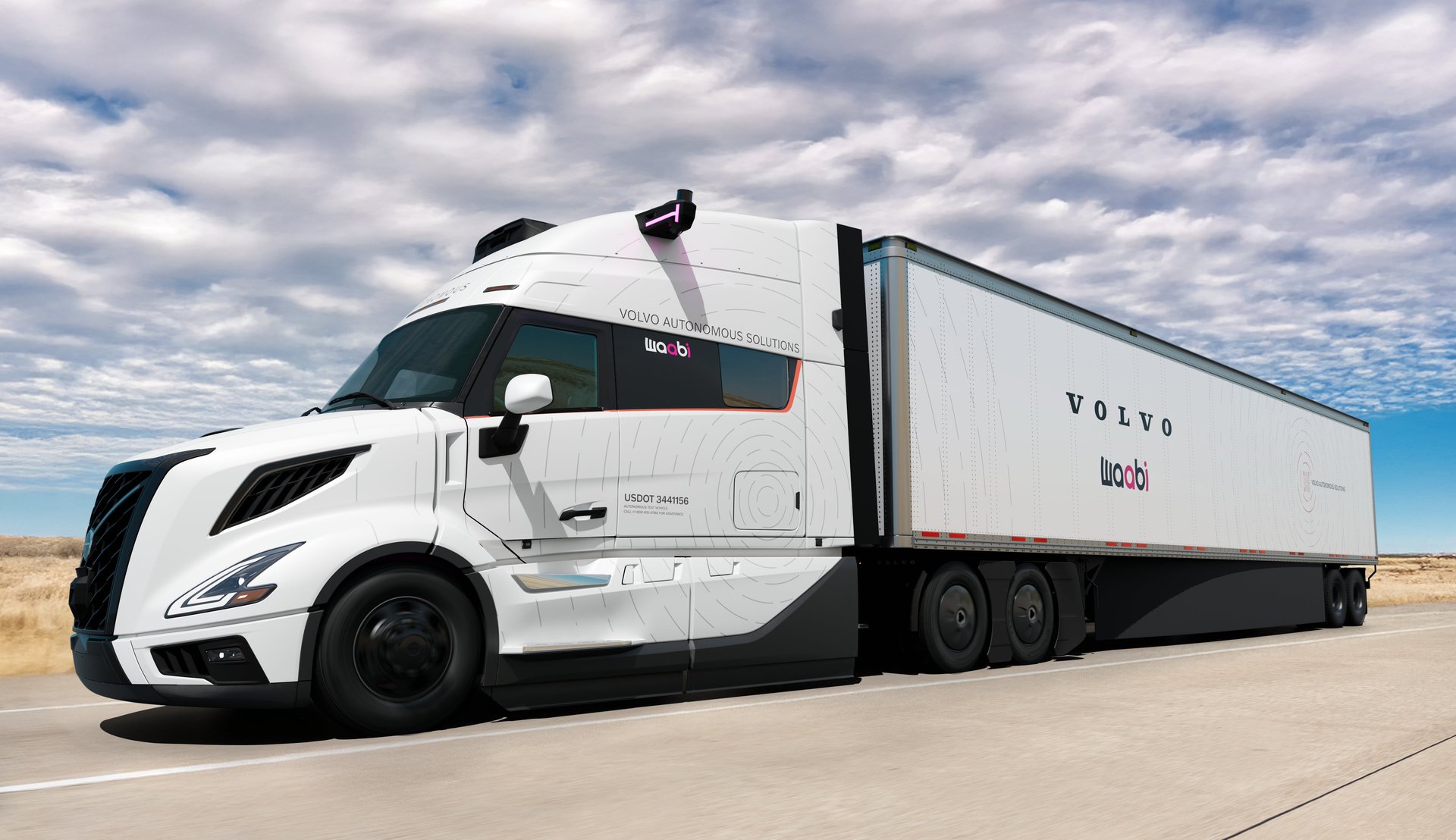Volvo is teaming up with a Nvidia-backed firm to deploy more self-driving trucks
Waabi's generative AI-based software will be integrated in Volvo's trucks

Volvo on Tuesday announced it was teaming up with Waabi, the self-driving truck startup backed by players like Nvidia (NVDA) and Uber (UBER), to jointly develop and deploy autonomous vehicles.
Suggested Reading
The companies said they would integrate Waabi’s generative artificial intelligence-based technology into the trucks being developed by Volvo Autonomous Solutions, a unit of the Swedish luxury automaker. The trucks, Volvo’s VNL Autonomous, will be made at Volvo’s assembly plant in Virginia’s New River Valley. Testing is expected to begin later this year.
Related Content
“We are excited to integrate Waabi’s cutting-edge technology into our autonomous truck platform,” Volvo Autonomous Solutions’ chief product officer, Shahrukh Kazmi, said in a statement. Waabi CEO Raquel Urtasun said that “vertically integrating next-generation AI technology directly into an OEM’s vehicle production is the path forward” to making safe autonomous vehicles at scale.
Last May, Waabi signed a multi-year lease on a trucking terminal in Dallas County, Texas, which will be the base for its operations in the state. The company first entered Texas in 2023, making trips between Dallas and Houston through its partnership with Uber Freight. It plans to expand testing in the state this year.
In 2024, the company drew $200 million for its Series B funding round from investors such as Nvidia, Khosla Ventures, and Uber. Volvo has also invested in Waabi, participating in both the Series A and Series B rounds.
Autonomous trucks have become an increasingly popular concept, potentially reducing the time it takes to transport goods and allowing companies to bypass the limitations of human workers. The industry is also mired in a debate over whether it has a shortage of human drivers or just difficulty retaining workers, largely thanks to long hours and poor wages.
According to the consultancy McKinsey & Co., use cases for autonomous trucks could translate into a $616 billion global market in 2035. By that time, the U.S.’s autonomous heavy-duty trucking market could reach a roughly $178 billion valuation, with such vehicles accounting for 13% of all trucks on the road.
Volvo has been working on autonomy for years, having developed an autonomous truck concept as early as 2017. A concept electric truck named Vera was unveiled in 2019 and put to work in a Swedish pilot program that year.
Volvo has also partnered with Aurora Innovation (AUR), a self-driving vehicle company based in Pittsburgh that works with several other companies, including Uber Freight and Continental. In May 2024, the companies debuted the VNL Autonomous at the ACT Expo in Las Vegas, describing the truck as a “purpose-designed and purpose-built” vehicle using Aurora’s hardware and software.
In December, Volvo began hauling freight on autonomous trucks on two lanes, Dallas to Houston and Fort Worth to El Paso, as part of a partnership with DHL Supply Chain. Since the technology is still being tested, a safety driver is behind the wheel of those vehicles.
